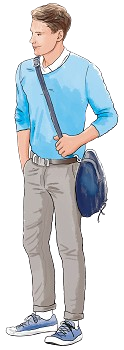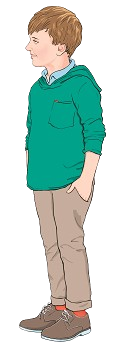It is a common misconception that when people meet the first thing they say is "Привет!" ("Privet"). Actually, in many cases this is inappropriate and may be taken as rude.
To illustrate the point here is a copy of a post in a social network.
"Having learned some Russian with a native speaker, I switched to taking lessons with a teacher, a man in his late 40s.
When we meet I always smile, wave my hand and say "Priviet". After 3 classes or so, he finally asked me "may I ask you, why do you say 'Priviet' and not 'Zdravstvuyte?'". I told him this is how I would talk to my old teacher and that's what I was normally taught. Then it turned out that a person with education and manners would never say "Privet" to anyone who he does not know closely and, especially, anyone older than he, since it would be consirered as rude. "I cannot imagine", he said, "that I would say to my English teacher 'hey dude, what's up?' ".





